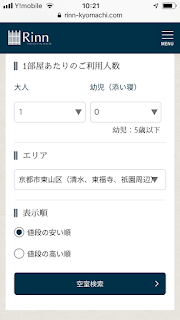This morning I was disappointed, because not only I was unable to find space to run and kick footy (Aussie Rules), but also the anime event had a queue for door sales tickets.
My thoughts came up straight - where were COVID guidelines and protocols? Why was there no social ‘physical’ distance in the queue? Was the event essential? Why were door sales tickets allowed to sell?
Cafe informing customers following COVID guidelines but could be only said not acted? (Photo: Sainter Yoshi)
I went cycling to get better immune systems as always, and was curious, so I researched the event. It had been planned before the current state of emergency was declared last month. As long as the event was not essential, it should have been cancelled.
However, holding the Tokyo Olympics under the state of emergency with enforcement jeopardises the circumstances in events nationwide. The international physical competition went ahead being opposed by many Japanese citizens. Then authorities cannot stop holding non essential events, like this weekend’s anime exhibition in Kyoto.
Unfortunately I have to accept that events are going ahead, but strongly argue that COVID guidelines and protocols should be followed. If social distances cannot be made, then events should be cancelled. To maintain the safety, door sales ticketing must not be allowed. All tickets should be purchased online or at ticket agencies in advance.
In the previous blog, I stress out that exercise should be promoted and encouraged to improve our immune systems to combat the coronavirus. I also present my opinion that we should not rely on vaccines as the only way to beat the virus.
Kyoto City Council encouraging citizens to get vaccinated by advertising on the bus, but there are other things they need to promote (Photo: Sainter Yoshi)
Here, I suggest that events promoting exercises and providing tips on nutritions should be held. Using big parks and separating zones to feature exercise programmes, the events give participants opportunities to do exercises and to be aware of the importance of doing physical activities. Nutritionists will advise participants to create a diet to improve immune systems. I strongly believe exercising and eating healthy foods are key and important activities to combat the pandemic.
Let’s live your life with a balance and hold physical activity events!! But don’t forget to follow the COVID guidelines and protocols.
Irish pub in Kyoto asking customers to follow COVID guidelines. It’s customers’ responsibility (Photo: Sainter Yoshi)












